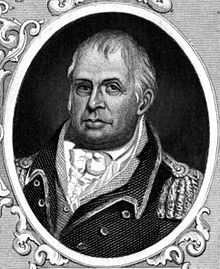
General William Heath
Wikimedia Commons
public domain image
General William Heath was an American farmer who became a soldier and then political leader. Born in his ancestral family home in Roxbury, Massachusetts, he joined the Massachusetts militia and when war broke out, he was a captain of the Suffolk County militia, but by 1770, he was a colonel and its leader.
Four years later, in December of 1774, he was promoted to brigadier general in command of the Massachusetts forces during the Battle of Lexington and the Battle of Concord. He felt strongly that the militia should have regulated training and General William Heath began enforcing and training the militia involved in the siege. That same year, Massachusetts named him a major general in the state troops, and he was promoted to brigadier general in the Continental Army.
General George Washington doubted General Heath’s abilities as a general, and although Heath took part in New York City’s defense in the Battle of Long Island and was promoted to major general, Washington posted Heath where he though there would be little to no action.
General Washington won the Battle of Trenton, which raised morale for the Americans, and in an attempt to keep it up, Washington ordered Major General William Heath to attack Fort Independence in New York, which failed. As far as General Washington was concerned, this confirmed that Heath could not lead and refused to give him command of troops in action. He was instead placed in command of John Burgoyne‘s troops who had surrendered after the Battle of Saratoga.
After the Revolutionary War, Heath began his political career. As a member of Massachusetts Convention, he was one of those who ratified the U.S. Constitution. He also served the Massachusetts Senate for a year and served as a probate court judge.
He passed away at 77 years old in his beloved Roxbury. The town of Heath, Massachusetts is named after him. Most of the letters and his writings during his time in the Army have survived.


